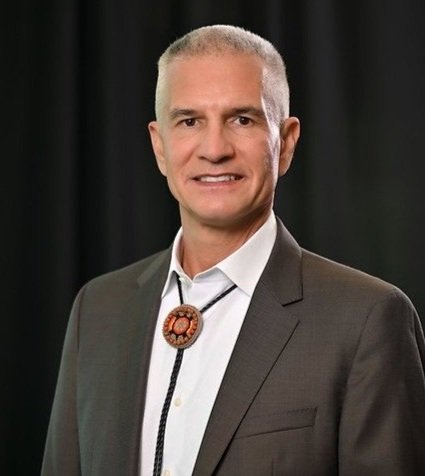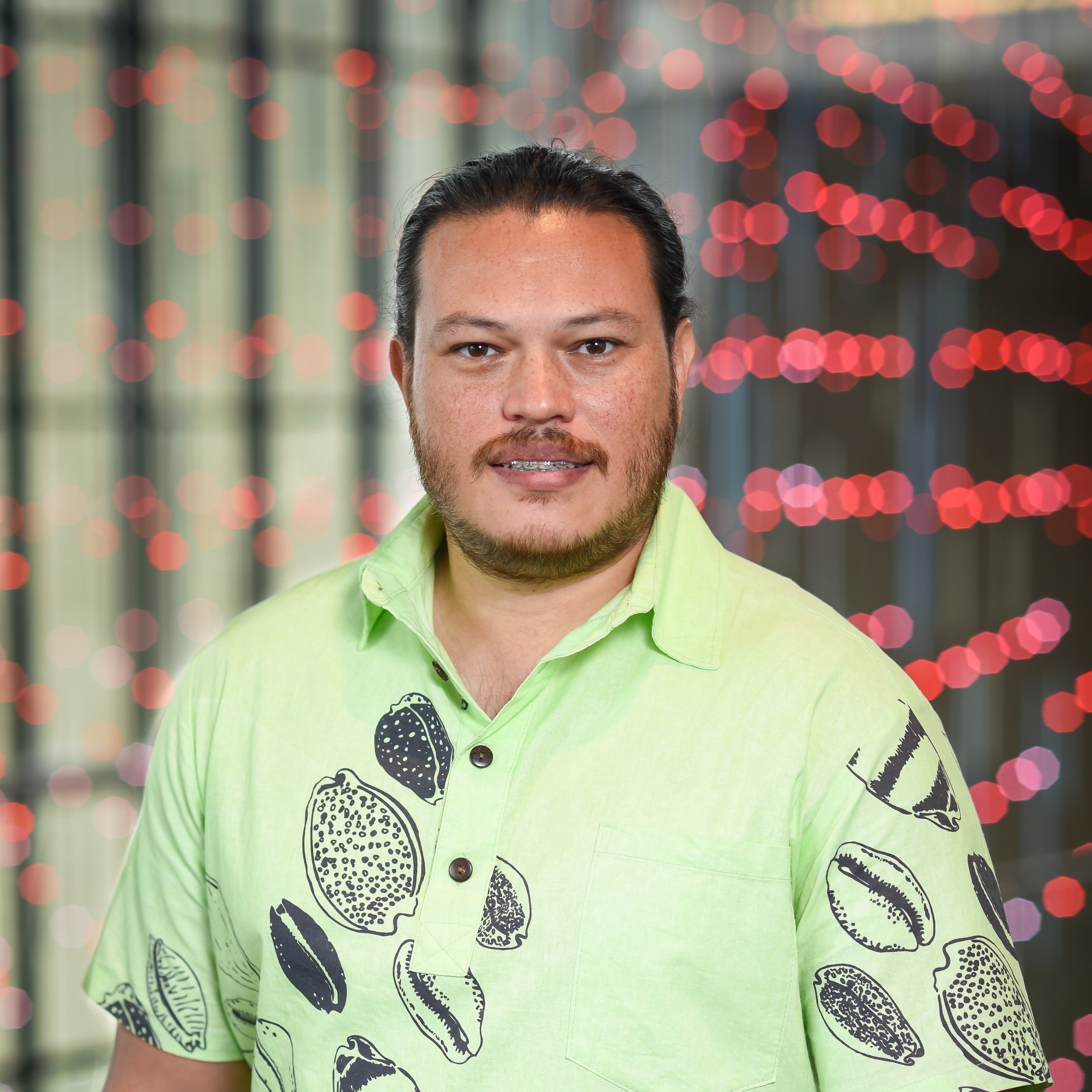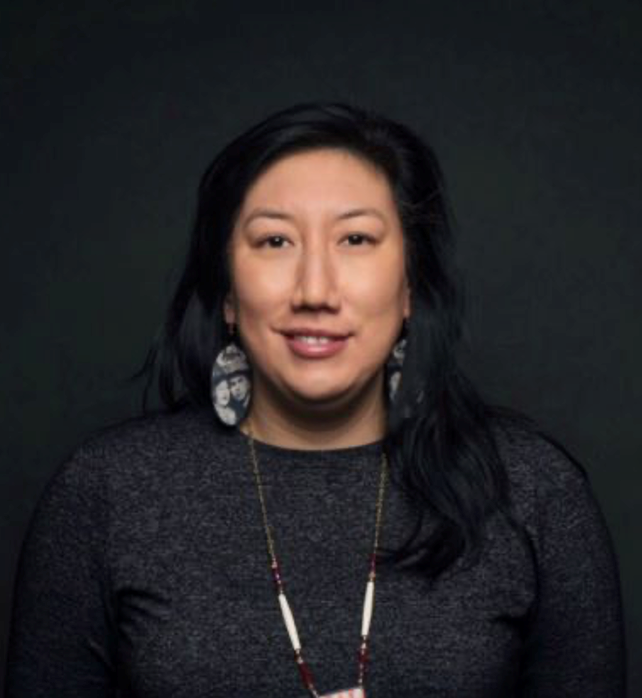NIEA Board of Directors & General Board
Board meeting minutes
The NIEA Board of Directors is made up of twelve American Indians, Alaska Natives, and Native Hawaiians from across the country. General Board Members serve a four-year term, Student Board Members serve two-year terms. New board members are elected by popular vote by NIEA membership during NIEA’s Annual Convention.
To learn more about the Board of Directors election process or to find information on running for a position, please visit the Board of Directors Elections page.
Board of Directors
Kerry Bird
SISSETON WAHPETON OYATE/LUMBEE
President
Kerry is an enrolled citizen of the Sisseton-Wahpeton Oyate of the Lake Traverse Reservation in South Dakota and of Lumbee tribal heritage. He was born and raised in Robeson County. He graduated with a BA in Political Science from the University of North Carolina at Chapel Hill (UNC) and holds a Masters of Social Work from Washington University in St. Louis, Missouri.
Mr. Bird is the inaugural director of the North Carolina American Indian Heritage Commission within the North Carolina Department of Natural and Cultural Resources. He was recently appointed to the board of the North Carolina Humanities and is the past president of Triangle Native American Society and a former president of the National Indian Education Association in Washington, DC, the oldest and largest organization that works to advance culturally relevant educational opportunities for American Indian, Alaska Native and Native Hawaiian students. He is a member of the Dix Park community committee, local advisory board for the Ackland Art Museum, N.C. Botanical Garden Foundation board, and the UNC World View Council of Advisors which equips developing global educators. He currently serves on the UNC Alumni Committee for Racial and Ethnic Diversity (ACRED) and co-chairs the ACRED American Indian subcommittee, and formerly served on the Board of Visitors for UNC Chapel Hill.
Kerry is a former Kellogg Fellow with Americans for Indian Opportunity of Albuquerque, New Mexico.
Ka’ano’I Walk
NATIVE HAWAIIAN
1st vice president
Ka‘ano‘i Walk serves as the Senior Policy Analyst in the Hiʻialo Group of Kamehameha Schools and advocates for the advancement of Native Hawaiians through the renormalization and proliferation of the ʻōlelo Hawaiʻi (Hawaiian language) and Hawaiian culture-based education throughout Hawaiʻi. He is one of the first students enrolled and educated in Ka Papahana Kaiapuni, the Hawaiian language immersion program, in Hawaiʻi. His family has dedicated their lives to the Hawaiian language revitalization movement and he is now raising his children in ʻōlelo Hawaiʻi and passing down indigenous ways of knowing and being to the next generation. Following his graduation from Kamehameha Schools at Kapālama (’99), he completed an undergraduate degree in Hawaiian Studies and Political Science at BYU-Hawaiʻi in 2003. Kaʻanoʻi then graduated from the William S. Richardson School of Law in 2008 with a Pacific Asian Legal Studies Certificate with a Specialty in Native Hawaiian Law. After successfully passing the Hawaiʻi State Bar in 2008, Kaʻanoʻi was selected as a Ka Huli Ao Center for Excellence in Native Hawaiian Law Post-Juris Doctor Research Fellow. He has authored and contributed to the following publications: “Officially” What? The Legal Rights and Implications of ‘Ōlelo Hawai‘i, 30 HAW. L. REV. 243 (WINTER 2007); “He Waʻa Hou: An Alter-Native Court for Hawaiʻi, ʻOhia: A Periodic Publication of Ka Huli Ao Center for Excellence in Native Hawaiian Law (2012); and Native Hawaiian Law: A Treatise, Kamehameha Publishing (2015). Ka‘ano‘i is a member of NIEA’s Advocacy Committee and serves to support NIEA’s vision and mission through its legislative work.
ʻAʻohe ʻulu e loaʻa i ka pōkole o ka lou. There is no success without preparation.
Dr. Twyla Baker
MANDAN HIDATSA ARIKARA NATION
2nd Vice President
Dr. Twyla Baker is an enrolled citizen of the Mandan Hidatsa & Arikara Nation and was born and raised on the rural Fort Berthold Indian Reservation in northwest North Dakota. Baker currently serves as the President of Nueta Hidatsa Sahnish College, the college chartered by her Tribal Nation. Her work is highly focused on improving quality of life and access to education for Indigenous people across the U.S. She writes and has published her research, opinion, thought pieces, and creative works in scholarly journals and other publications.
Alicia Begolin
White MOuntain Apache
Secretary
Dagot’ee!
My name is Alicia Begolin. I am a proud member of the White Mountain Apache tribe. I was born and raised in Whiteriver, AZ. My clans are Tugain’ (White water people) and born for the Tachiinii (Red Running into the water people).
Growing up in a single mother household wasn’t the easiest. I have 6 sisters and 2 brothers. I guess you can say that I grew up in a big family. In our family, my mother was our mother and father figure. She provided us a roof over our heads, food on the table and clothing to wear. In this very moment, I wouldn’t be the woman I am today without the wisdom and knowledge of Being the 3rd oldest. With that I had a lot of responsibility of helping my mother take care of my younger siblings by making sure they had their homework done, attending their Parent Teacher conferences and parent advisory meetings on behalf of my mother. If it wasn’t because of those very moments I wouldn’t be standing in this position before you today.
As I grew older, I begin to realize that I can no longer void the feeling of knowing where I belong. You see, I come from a family of teachers. I avoided that because I wasn’t sure who I wanted to be. It wasn’t until I applied with our tribal education department in 2015, I knew from that very moment that this is what I wanted my career in. I started my path in education as a JOM Specialist for the past 7 years and now as of May of this year I currently am the Office of Higher Education Program Coordinator. While still working , I kept attending our local school PAC meetings, although I wasn’t a parent, I felt that it was important to have a family / community member at these meetings to speak on behalf of the students. Since then, I have then expanded my knowledge and experience into the National Indian Education Association membership committee. Through these committees I have served on various capacities such as a secretary through building my way up the ladder of becoming a president.
My experience has given me an eye-opener and wisdom for wanting to better our community and schools. I have gained knowledge of board rules, policies, and procedures. Experience in the development, implementation, and evaluation of strategic program rules, polices, long and short-range goals and plans. And experience in working with multiple parties to collaborate. My lifetime goal is to continue to advocate and to stand by our students for the next seven generations to come.
Let’s continue the good fight.
Ashoog (Thank you!)
Sedelta Oosahwee
Mandan, Hidatsa and Arikara Nation/Three Affiliated Tribes & Cherokee
Treasurer
Sedelta Oosahwee is currently a Senior Program/Policy Analyst/Specialist with the National Education Association where she manages the American Indian/Alaska Native portfolio and serves as a lead on racial justice in education. Previously, she served as Senior Advisor and Acting Deputy Director for the Office of Tribal Relation in the US Department of Agriculture; before that she was the Associate Director of the White House Initiative American Indian and Alaskan Native Education. Before shifting her career focus to the national level, Ms. Oosahwee served the Cherokee Nation of Oklahoma as Special Projects Officer and as coordinator for Student Programs in the Center for Tribal Studies at Northeastern State University in Tahlequah, OK. The National Education Association and Ms. Oosahwee have been long time partners and sponsors of NIEA both in their programmatic work and at their annual convention. Ms. Oosahwee is an enrolled citizen of the Three Affiliated Tribes of the Fort Berthold Reservation.
Kimberly Daingkau-Begay
Kiowa, Caddo, and Pawnee
Parliamentarian
Kimberly Daingkau-Begay is of the Kiowa, Caddo, and Pawnee Nations born and raised in southwest Oklahoma. She received her bachelor's degree in Political Science with a minor in Pre-Law from Fort Lewis College in Durango, Colorado and has also studied at the University of Arizona in the American Indian Studies Graduate Program. As an undergraduate, she was instrumental in establishing a nation-wide student symposium of the American Indian Studies that started as a collaboration with the University of Oklahoma in 2008. She also received professional training in Media to assist in the development of the Native American & Indigenous Studies media curriculum at Fort Lewis College. Kimberly’s background work includes several aspects within tribal entities, government and education. Her professional career includes the Bureau of Indian Affairs, the Kiowa Tribe of Oklahoma, and the United Keetoowah Band of Cherokee Indians. Currently, she serves as the District Coordinator of Native American Education for the Amphitheater Public Schools in Tucson, Arizona. She also serves as the President, Arizona Indian Education Association; Region 1 Representative, National Johnson O’Malley Association; Advisory Board Member, Center for the Futures of Native Peoples at Dickinson College; and has formally served several years on the Arizona Office of Indian Education’s Indian Education Advisory Council. Kimberly and her husband have two amazing children. She has presented and spoken at numerous events of her Native culture, federal Indian law & treaties, and cultural storytelling. She was inspired by her parents and grandfather to continue in our tribal tradition and heritage.
Dr. Lori V. Quigley
Seneca Nation, wolf clan
Ombudsperson
Dr. Lori V. Quigley (Seneca Nation, wolf clan) is semi-retired after a career in education that ranges from achieving the rank of tenured full professor, to serving as an academic dean and provost. She earned her bachelor of arts in Journalism and Mass Communication from St. Bonaventure University, and a master of arts in Public Communication and Ph.D. in Language, Learning and Literacy from Fordham University.
Lori’s academic leadership roles have involved articulating a vision for the future and building a culture of intellectual excitement to shape centers of excellence and distinction by establishing a diversified portfolio of programs. Lori established community partnerships, as well as demonstrated relationships with funders and major donors who committed to supporting several programs she initiated. In her work, Lori has focused a great deal of energy on the development and sustainability of programs that are socially just, culturally responsive, and aggressively seek to serve all students.
Lori’s research interests include multigenerational trauma and culturally relevant pedagogy. Lori was awarded the prestigious State University of New York Chancellor’s Award for Research and Scholarship; she received the Hackman Residency Award from the NYS Archives, enabling her to research the history and sociological impact of Native American residential boarding schools. She served as an advisor for the documentary Unseen Tears: The Impact of Native American Residential Boarding Schools, and has published journal articles on the history on the Thomas Indian School. Other accolades include being named “Woman in Leadership” by NYS Women, Inc., the Buffalo State President’s Award for Excellence in Equity and Campus Diversity, and the Community Leader Award by the National Federation of Just Communities. Buffalo’s Business First recently listed her as #91 out of the 200 most powerful women professionals in WNY.
Committed to diversity, equity and inclusion initiatives and giving back to community, Lori received a U.S. Presidential appointment to the National Advisory Council on Indian Education and completed a two-term gubernatorial appointment on the NYS Minority Health Council. Currently, she serves on the boards of the National Indian Education Association (NIEA), the YWCA of WNY, and the Seneca Gaming Corporation as Chairwoman of the Board.
She grew up on the Allegany territory of the Seneca Nation of Indians; currently, she lives in Grand Island, NY, with her husband Don and their goldendoodle, Clancy.
General Board
Sonya Skan Ketchikan Indian Community Alaska representative
Xáa Tooch Sonya Skan is Tlingit Kaagwaantaan and Cree from Canada. She has lived in Ketchikan, Alaska for 42 years where she and her husband Norm have raised five sons together. Sonya has worked with youth for over 30 years.
When her son was five years old, she brought him to Tlingit language classes and witnessed the significant impact that culture influenced her child’s self-esteem. Sonya then looked for volunteer positions in the community where she could support young people in their quest to learn about their culture and discover the strength that comes with cultural identity.
Sonya began working with Ketchikan Indian Community in 2010 as the Tribal Youth Liaison. She now serves as the Director of Education & Training Department, overseeing initiatives like Workforce Development, Educational Programs like Tribal Scholars (tribal high school), Tribal Youth Program, and Language Program. In addition, Sonya has also served as the Board Chair for Women in Safe Homes, and as a board member for the Ketchikan Youth Court. Further, she was President of the Arts Humanity Council where she helped start a Diversity Task Force which focuses on finding pathways for youth to become more empowered in the arts community. Through her work with the Tribal Youth and Tribal Scholars Program, she has helped to implement a program, “Learning Who They Are”, in which elders and culture bearers work with youth to create family trees. Furthermore, Sonya has served on the Ketchikan Gateway Borough School Board where she worked to start a Native Education Committee. She has also served on the UAS Ketchikan Advisory Board and has sat as co-chair of the Advocacy Committee for the National Indian Education Association.
Dr. Hugh Burnam
Mohawk
At-Large Regional Board MEmber
Hugh Burnam, Ph.D. is Mohawk, Wolf Clan from the Onondaga Nation. He is currently a Postdoc Research Affiliate in the Department for Indigenous Cancer Health at Roswell Park, where he researches health disparities and supports educational programming related to cancer in Indigenous communities. Hugh’s research focuses broadly on social justice issues and experiences of Native students in the education system, including K-12 and higher education. His doctoral work examined the experiences and perceptions of Haudenosaunee men in higher education, which focused on Indigenous sovereignty, cultural responsibilities, and building community relationships on and off campus. Hugh also volunteers his time with the Native American Indian Education Association of New York State (NAIEA/NY), where he works alongside Native communities in NYS to support and advocate for Indigenous education broadly. In published and forthcoming work, Dr. Burnam uses an interdisciplinary lens to research topics related to Indigenous methodologies, student experiences, Indigenous identity, and persistence in STEAM-related fields. Hugh received his doctorate from the Cultural Foundations of Education program at Syracuse University, his master’s degree in Adult Education from Buffalo State University, and his bachelor’s degree in Individualized Studies (Ethnic and Minority Studies) from Buffalo State University. Hugh is an avid hiker and a former lacrosse player and coach— and loves spending time with his family, especially his two sons, the inspiration for his work.
Mischa Jackson
Central Council of Tlingit and Haida Indian Tribes of Alaska
At-Large Regional Board MEmber
Mischa Jackson, Chookangee Tláa, is a dedicated Lingít educator and member of the Shangukeidí (Thunderbird) Clan, from the House Lowered from the Sun. Residing in Juneau, Alaska, she is an enrolled member of the Central Council of Tlingit and Haida Indian Tribes of Alaska and currently serves as the Tribal Education Compact Liaison. Her extensive experience spans work with non-profits, public schools, tribal programs, and universities, where she made impactful contributions as an Indigenous educator and mentor.
A graduate of UC Santa Cruz with master’s degrees from Temple University and the University of Alaska Southeast, Mischa is a respected educator and advocate within Southeast Alaska’s Indigenous education community. She has a strong background in secondary teaching, curriculum design, and Indigenous educational leadership, dedicating her career to creating educational opportunities that are both academically rigorous and culturally grounded for Alaska Native students.
As a mentor, Mischa has played a pivotal role in guiding future Indigenous educators at both the secondary and university levels, emphasizing the importance of culture-based curricula, community engagement, and language revitalization. She has worked tirelessly for over 15 years to support Alaska Native students and teachers across tribal, public school, and university settings.
Most recently, Mischa has been instrumental in negotiating with the state of Alaska to establish systems to support tribally compacted public schools, advocating for systemic change that strengthens educational sovereignty for Indigenous communities. Her work exemplifies her deep commitment to the future of Indigenous education and her unwavering dedication to creating meaningful and lasting change.
Dr. Connie Locklear
Lumbee Tribe of North Carolina
At-Large Regional Board MEmber
Dr. Connie Locklear is married to Chris and they have two children (Kristin and Johnathan), grandmother of four (Isabella, Elijah, Ezekiel, and Hazel) and the daughter of Joe (deceased) and Gladys Locklear. She is an enrolled member of the Lumbee Tribe of North Carolina and currently serves as the Director of the Title VI Indian Education Program for the Public Schools of Robeson County, NC. She has a spent her entire professional career in education and has served in many capacities. She taught math, became a curriculum specialist and a district wide curriculum supervisor in the areas of mathematics and science. Dr. Locklear also worked with the NC Teacher Academy where she provided professional development (PD) opportunities to teachers across the state. She has provided PD at the local, regional, state, national, and at the international level. Dr. Locklear holds bachelor’s and master’s degrees in mathematics education as well as an Educational Specialist and Doctor of Education Degree in Curriculum and Instruction.
She serves as an appointed by the NC General Assembly for the Professional Educator Preparation and Standards Commission, member of the Dudley Flood Equity Board, Science for All Steering Committee as well as others. She has also served on the NIEA Board, the NC Science, Mathematics, and Technology Education Center Board, Chairperson of the Burroughs Wellcome Fund Student Service Enrichment Program, member of the Intertribal Talking Circle Substance Abuse Prevention Native Youth Community Partnership Grant, and former Chairperson of the State Advisory Council on Indian Education.













